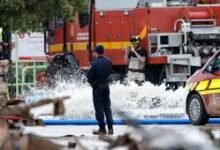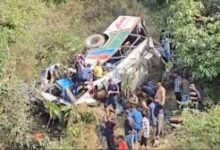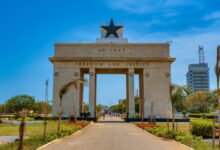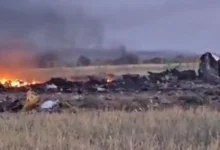Colombia protests: Shortages in Cali as demonstrations continue

Three weeks into nationwide anti-government protests, residents in Colombia’s third-largest city, Cali, say they are struggling to get petrol and some food items.
Protesters have blocked some of the main access roads into the city and deliveries have been severely disrupted.
Cali has been the scene of some of the worst clashes between protesters and security forces.
At least 42 have died in the protests.
While food and medicines have been reaching the city after a number of “humanitarian corridors” were established last week, the disruption has been severe.
Cali’s Mayor Jorge Iván Ospina said it was vital that supplies be allowed through without any hold-ups.
“Some supplies or limited supplies are not enough,” he said about the agreement with protesters blocking the roads to let some delivery trucks pass.
The city depended on food from neighbouring regions to feed its residents, he explained.
Traders at one market said there was a shortage of potatoes while those at another market said they had received a delivery but at a price 30 per cent higher than usual.
Residents have reported queuing for up to 12 hours for petrol.
The protests in Colombia ran into their third week on Wednesday. While they were originally in opposition to a now-suspended tax reform, they have since turned into much broader demands, including abolishing university tuition fees, introducing a universal basic income, disbanding the riot police force and improving the security for rights defenders and indigenous activists.
Mayor Ospina said Wednesday’s protests in Cali had been peaceful and praised participants for their restraint.
Previous protests have turned violent with the deadliest, on May 3, resulting in at least five people being killed and 33 injured in the neighbourhood of Siloé.
The United Nations said it was shocked at the events in Cali and accused police of firing live ammunition.
Mayor Ospina said on Wednesday that he had met victims of the clashes in Siloé and that he would ensure that the issue would be taken to “the highest courts of justice”.
He also had a meeting with members of indigenous groups who joined the protests last week.
In another violent incident in the city, eight indigenous people were injured when unidentified gunmen in civilian clothes fired at the roadblock they were manning.
Colombian President Iván Duque met with members of the National Strike Committee, the umbrella group which has been organising some of the protests, on Monday, but they failed to reach an agreement.
-BBC








